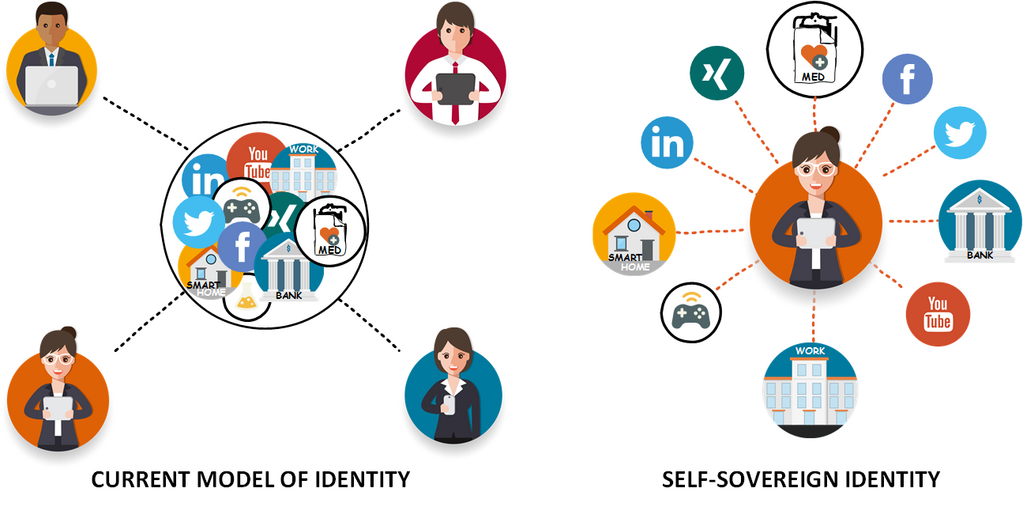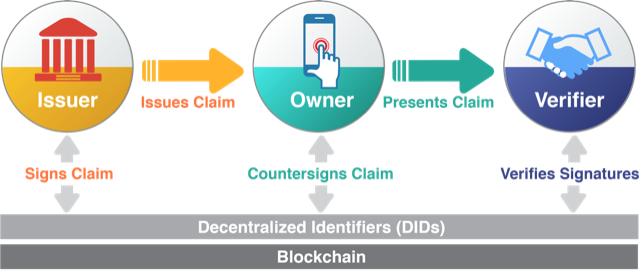In today’s digital world, online identity has reached a height of centralization and interconnectedness, where platforms like Instagram and Snapchat have the keys to our souls.
Traditionally, the concept of identity was a central challenge in the online environment because of the ever-evolving nature of it. Identity is incredibly complex, multifaceted, and since there is no holistic definition of who we are, it becomes increasingly more difficult to establish a level of trust between multiple parties. However, as our dependence on social media platforms and APIs that store user information increase, the problem now becomes not necessarily defining identity but managing digital identity.
Generally, establishing trust and accountability are the main reasons for creating identity systems. More specifically, the role of identity online should make interactions easier, more efficient, and now most importantly, secure and private. Today, with the details of our personal lives spread across the web, self-sovereign identity seems like a distant dream. However, I truly believe that with the emergence of blockchain technology we are given a push in the right direction.

Central Elements of SSI
The central premise of self-sovereign identity means that the user becomes the central administrator of their identity. For this to work, it would require not just the interoperability of a user’s identity across multiple platforms, but also true user autonomy. These essential pieces of self-sovereign identity make blockchain technology an elegant solution to this next evolution of digital identity.
Today, self-sovereign identity is a critical solution to all the data leaks where governments and companies have failed to protect citizen and customer information from cyber attacks. These centralized bureaucracies have continuously demonstrated their inability to properly manage critical elements of identity. This is why the identity management process needs to incorporate the use of a public blockchain.
The very nature of a public blockchain lends itself well to identity management. Blockchains create an environment where data is private, immutable, transparent, distributed, and is free to operate without the direction of a sovereign entity. However, these very characteristics of distributed ledgers can cause some challenges for identity management as well. The reasons are that distributed ledgers may encounter instances of crystallizing false or inaccurate information and users losing their private keys.
In my opinion, the process for effectively managing identities would have to incorporate some level of interaction with governments or private companies. This is why a coordinated effort would be most effective.
Establishing Societal Trust
It’s also important for people to understand that moving towards a society that incorporates a self-sovereign identity model, where users manage and own their own data, brings its own unique set of challenges. For example, there would need to be a way for users to interact with the external world without exposing the specifics of their personal data.
One of the really exciting solutions being built in the blockchain space for this application are zero-knowledge proofs. Utilizing zero-knowledge proofs would allow users to prove externally their knowledge of a shared secret without revealing the specifics of the secret itself. This technology would be absolutely necessary if we were to ever adopt a self-sovereign identity model in the future.
Another challenge with self-sovereign identity exists with users managing their own private keys. How would a user recover access to their identity if they lost their private keys? A real user-friendly solution to this problem has yet to be discovered, but I do feel that it could involve some level of biometric identification. Why not link or embed the private key into the user’s facial biometrics and make that the sole copy? There is nothing more central or more personal than an individual’s face to their identity.

Current Status of Identity on the Blockchain
Even in today’s early days of blockchain technology, user behavior on the blockchain already sheds light on the identity behind each address. For example, just from the information that lives on the blockchain you are able to see which addresses have been KYC verified or hold accreditation status. Other identity insights you can infer from public blockchain information is whether the user behind a specific address is a miner, developer, or even which type of token they are more likely to interact with next.
As cryptocurrency exchanges like Binance and Coinbase begin to onboard more and more users, they will have the incredible luxury of linking someone’s off-chain identity with their blockchain identity. This creates a perfect onramp towards a self-sovereign identity model. As I mentioned previously, to truly move towards a user-controlled identity model, private companies or the government will have to be involved.
Conclusion
Like the internet, blockchain and other decentralized technologies represent a fundamental infrastructural innovation, that has the potential to enable a fair and inclusive digital economy. I see self-sovereign identity as a fundamental building block towards a future where users can transact with ease and efficiency while preserving the privacy of the specific elements of their identity. Blockchain technology’s very nature of creating an environment where data is private, immutable, transparent, distributed, and is free to operate without the direction of a sovereign entity makes it perfect for identity management.